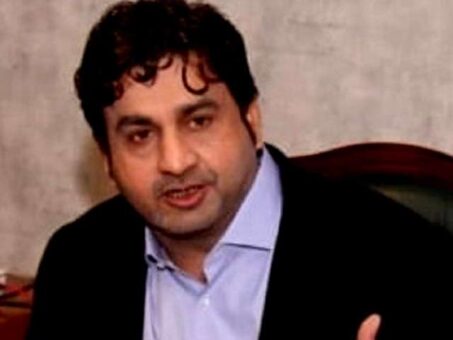Karachi Chamber of Commerce and Industry (KCCI) has advised importers of motorcycle spare parts to set up industry for manufacturing locally.
KCCI President Mohammad Tariq Yousuf advised the importers of motorcycle spare parts to go for setting up their own cottage industries for manufacturing various spare parts which were currently being imported as it was no more feasible to import these parts because of uncertain situation triggered by unstoppable currency fluctuation.
READ MORE: KCCI managing committee candidates elected unopposed
Exchanging views with a delegation of All Pakistan Motorcycle Spare Parts Importers and Dealers Association (MSPIDA) which was led by its Chairman Nasir Maqbool during visit to KCCI, Tariq Yousuf stressed that setting up small industries for manufacturing spare parts was the only solution to most of the problems being faced by traders including exorbitant customs duty, delays in clearance of consignments, heavy demurrage/ detention losses and high cost of imported goods due to rising dollar value.
“You have to go for import-substitution otherwise, all the issues being faced today would remain as they are in future so you must look into the possibility of becoming independent by setting up small manufacturing units,” he added.
READ MORE: APTMA demands immediate release of textile machinery
Senior Vice President KCCI Touseef Ahmed, Vice President KCCI Muhammad Haris Agar, Chairman KCCI’s Special Committee for Small Traders Majeed Memon, Former President KCCI Iftikhar Ahmed Vohra, Former Chairman MSPIDA Faisal Khalil, KCCI Managing Committee Members and MSPIDA Members also attended the meeting.
Tariq Yousuf assured that the Karachi Chamber, being the actual representative of the entire business and industrial community, was well-aware of the issues being faced by shopkeepers due to rising street crimes and has constantly been pushing the Law Enforcing Agencies to take stringent steps so that they could fearlessly carry out their businesses.
READ MORE: Date extension demanded for electricity bills payment
“Any MSPIDA member, who faces problems in dealing with any law-and-order issues can easily get in touch with KCCI’s Police Chamber Liaison Committee and Law & Order Subcommittee who are working round-the-clock to help out the perturbed shopkeepers, businessmen as well as the industrialists”, he said.
Moreover, all MSPIDA members facing delays in clearance of imported goods can also approach KCCI and we will get in touch with the Customs Authorities and the State Bank of Pakistan so that the imported items could be cleared within the earliest possible time which would save importers from suffering grave losses on account of demurrage and detention charges, assured President KCCI.
He also stressed that the government must look into the possibility of bringing down customs duty of spare parts and rationalize Valuation rulings as these were not supporting the economy but paving way for smuggling and causing losses to the national exchequer.
READ MORE: Power tariff hike termed disaster for industries
Earlier, Chairman PASPIDA Nasir Maqbool, in his short remarks, congratulated the newly elected Office Bearers and hoped that the support and cooperation between the two institutions would strengthen further in the days to come and collective efforts will be made for resolving numerous issues particularly the Customs and Valuation issues being faced by the importers of spare parts.
Speaking on the occasion, Former Chairman PASPIDA, while agreeing with President KCCI’s viewpoint about import-substitution, stated that although many importers of spare parts have established small manufacturing units so that they could locally manufacture various imported items but the raw material required for manufacturing these spare parts has also been blocked under Customs Tariff Section 84 and 85 which needs attention.
He said that exorbitant customs duty of 35 percent along with 11 percent additional duty, high GST and other levies were having an overall impact of around 90 percent on the cost of imported spare parts of motorcycles, making this important mode of travelling costlier and beyond the reach of poor segment of society.
“We request KCCI to take up this important issue with relevant policymakers in Islamabad so that the customs duty and other taxes could be drastically reduced which would not only save relevant businesses but also prove favorable for the economy by discouraging widespread smuggling of spare parts”, he added.








